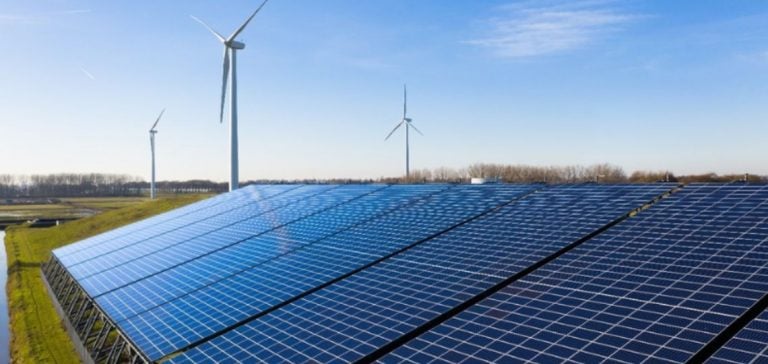Octopus Energy announces a £2 billion investment to support renewable energy generation in the UK by 2030.
The plan includes the recent acquisition of four solar projects in England from Germany’s BayWa AG, representing a combined capacity of 222 megawatts (MW).
These solar installations should be operational between 2025 and 2026, generating enough electricity to power around 80,000 homes.
This development is part of the UK’s drive to triple its solar generation capacity to 50 gigawatts (GW) by 2030, in response to national decarbonization targets. This investment is designed to boost the country’s solar energy production capacity, while improving its energy independence.
It is also a response to fluctuations in international fossil fuel markets, particularly in view of the current instability of energy prices.
Diversification strategy in solar and wind power
Octopus Energy is developing a diversified portfolio of renewable energy assets, covering solar, onshore and offshore wind power, as well as energy storage systems.
In total, the company currently supports 16 onshore wind farms, three offshore wind farms and three battery projects.
This approach addresses the challenges of intermittent renewable energies, in particular by optimizing battery storage to ensure a continuous supply of electricity.
Recent reforms to onshore wind planning in England mean that Octopus can submit several applications for new installations in 2024, reinforcing the expansion of its wind portfolio.
Onshore wind power, once limited by local restrictions, is experiencing a new dynamic with these regulatory adjustments, offering growth prospects for years to come.
Decarbonization objectives and energy independence
Octopus’ £2 billion investment is also part of a wider context in which the UK is striving to meet its decarbonization targets by 2050.
The UK government is counting on a significant increase in renewable energy production to reduce the share of fossil fuels in its energy mix.
Currently, the UK is aiming to increase national solar capacity to 50 GW by 2030, a significant increase on the current 14 GW.
Support for solar, wind and energy storage will help reduce dependence on fossil fuels, while increasing the country’s energy security.
Battery projects, meanwhile, are essential to offset the intermittency inherent in renewable energies, helping to stabilize the power grid in the event of increased demand or reduced production.
Contributions to the energy market and economic outlook
By investing in renewable infrastructure, Octopus Energy is actively participating in the national effort to strengthen the UK’s competitiveness in the global energy sector.
This growth strategy also aims to lower energy costs for consumers by encouraging domestic production.
Indeed, by producing more energy on British soil, the country reduces its exposure to fluctuations in international energy prices.
In addition to the environmental benefits, these investments contribute to the local economy by creating jobs in the construction, maintenance and operation of solar and wind power plants.
Decarbonizing the UK’s energy mix is becoming not only an environmental necessity, but also an economic opportunity to boost the renewable energy industry.
Regulatory impacts and future challenges
Octopus Energy’s trajectory also illustrates the implications of recent regulatory reforms in the renewable energy sector.
The simplification of planning procedures for onshore wind projects in England paves the way for accelerated investment in this technology.
Wind power, alongside solar and energy storage, is at the heart of the national strategy to meet 2050 climate targets.
However, the development of these projects also relies on the ability of the UK electricity grid to integrate new renewable energy sources, requiring improvements in transmission infrastructure.
Government, regulators and private players will therefore need to work together to ensure that the grid can accommodate this new capacity without compromising energy stability.






















